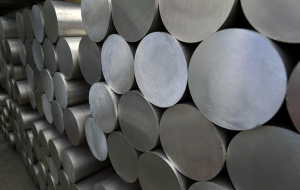After joining the United States’ first 3D printing institute, America Makes, in 2013, Alcoa Inc. has begun looking into how they can best incorporate 3D printing technology into their business as the third largest producer of aluminum in the world. At the company’s annual investor day presentation, Alcoa’s chief technology officer, Ray Kilmer, said that the aluminum maker is attempting to use 3D printing to produce jet engine parts, among other things.
 The company’s research has demonstrated to Alcoa that, with the technology, they can reduce product development costs by 25% and production time by 50%, according to Kilmer. At the same time, 3D printing can allow for more complex parts than possible with traditional manufacturing techniques. Kilmer said in the presentation, “You are going to see it have a big impact in industry.”
The company’s research has demonstrated to Alcoa that, with the technology, they can reduce product development costs by 25% and production time by 50%, according to Kilmer. At the same time, 3D printing can allow for more complex parts than possible with traditional manufacturing techniques. Kilmer said in the presentation, “You are going to see it have a big impact in industry.”
In one study, 3D printing parts for casting jet engine fan blades, Alcoa saw production time cut from one year to only 25 weeks, as the company could avoid making dies. Although, Kilmer, added, “More research is needed, but we will be able to print some of these parts directly (instead of casting).” With this in mind, the company believes the main driver for the adoption of 3D printing technology at Alcoa is, Kilmer says, the “relentless pursuit of taking costs out” of manufacturing. They’ve been able to earn almost $862 million up to Q3 and project $1.1 billion total for 2014, more than the original $850 million target for the year. This Kilmer attributes to cutting costs in production.
Outside of their own research, the company is also working with the University of Pittsburgh, Acutec Precision Machining Inc., ANSYS, Inc., and industrial 3D printer manufacturer ExOne in study funded through America Makes, titled “Developing Topology Optimization Tools that Enable Efficient Design of AM Cellular Structures.” In this study, the members are working to create micromechanic models of cellular structures in finite element analysis to optimize 3D printed parts, making them stronger and more lightweight. The company is also connected to Youngstown State University’s Center, through faculty member and Alcoa employee, Brett Conner, who is the center’s supervisor. Alcoa has also already begun construction of a new $100 million aerospace expansion facility in Indiana, where it will feature 3D printing alongside digital X-ray and advanced robotics technologies to produce jet engine parts.
With increasingly close ties with the technology, the company is keen to see how it can be used in-house and is currently researching how it might best take advantage of the technology, both at the Alcoa Technology Center in Upper Burrell, Pennsylvania and in their other locations, with Kilmer saying, “We have a large focus group looking at 3D printing.” Aside from the development work being performed in-house, the company is also exploring the possibility of acquiring an outside company. Any takers?

Leave A Comment